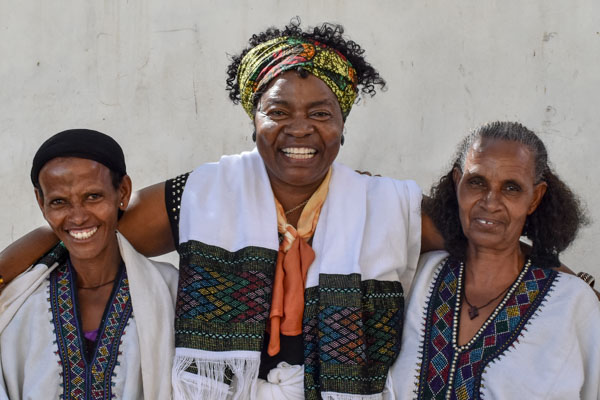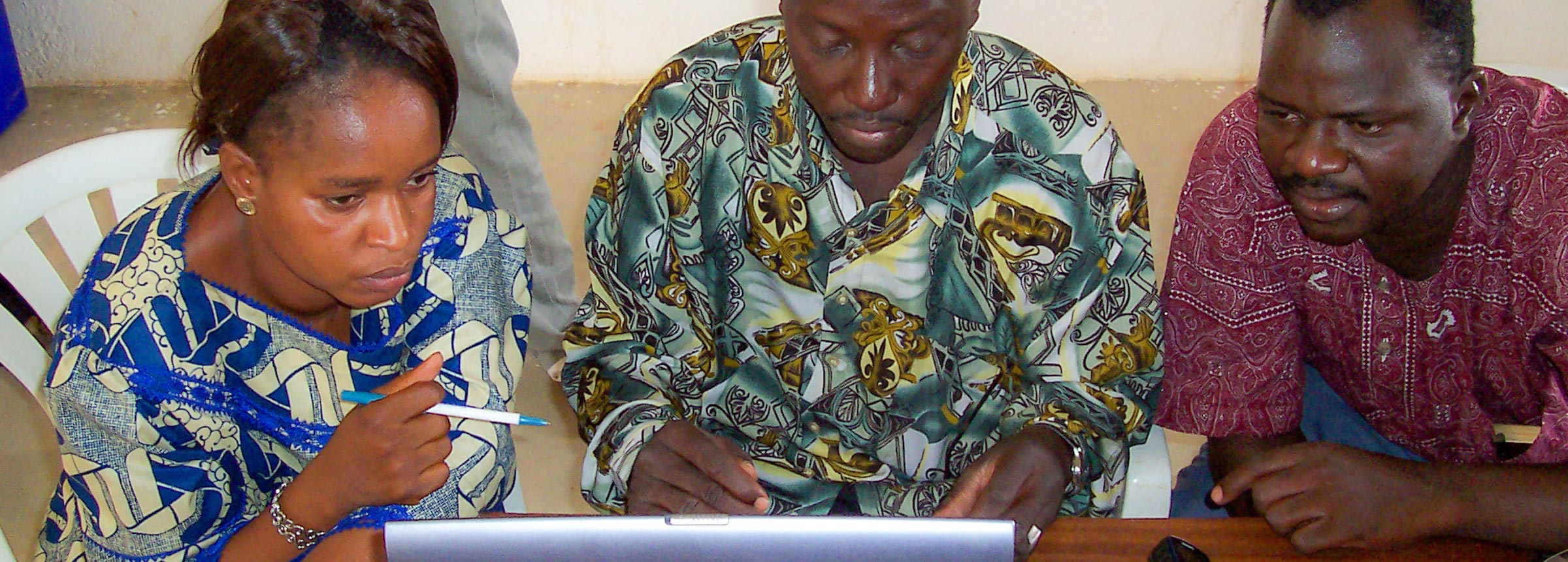“Everyone Matters:” Insights from a Pioneering Career in Nutrition and Women’s Empowerment in Africa
New Winrock Board Member Dr. Ruth Oniang’o on the importance of humility, dignity, empathy and partnership
Speaking at a special all-staff virtual event on Thursday, May 6, new Winrock board member Dr. Ruth Oniang’o sketched an outline of her trailblazing career as one of Africa’s earliest food policy changemakers, salting in references to some of the core principles underpinning a remarkable body of work that has helped thousands of smallholder farmers, many of them women, learn how to grow healthy food on her home continent.
Seeking diverse partnerships, listening carefully, and “being there on the ground, being there for the long haul,” are critical to long-term impact, said Oniang’o, a food security and nutrition researcher, indigenous vegetable evangelist, and Africa Food Prize winner who joined Winrock’s board in March 2021. Oniang’o, a former Member of Parliament who led the development of Kenya’s national nutrition and food security policy, addressed Winrock staff from her office in Nairobi.

During her introduction, Winrock Director of Program Delivery DeAnn McGrew ── who nominated Dr. Oniang’o to the board last year ── spoke of “Dr. Ruth’s” passion for smallholder farmers, women and youth in agriculture, “and promoting and elevating the work of African experts in food, agriculture, nutrition and related policy. These passions led her to found the Rural Outreach Program (now known as Rural Outreach Africa), which provides small farmers in Africa with the resources they need to be productive. She also founded the African Journal of Food, Agriculture, Nutrition and Development in 2001 and still serves as its editor-in-chief,” McGrew noted. The journal provides space for African food and nutrition researchers to publish influential, peer-reviewed papers that have shaped food and nutrition policy across Africa.
In addition to joining Winrock’s board, Oniang’o is board chair of the Sasakawa Africa Association — founded by former Winrock Board member Norman Borlaug, Japanese philanthropist Ryoichi Sasakawa and former U.S. President Jimmy Carter — and worked to define and expand the program. In 1991, Winrock partnered with the association to create the Sasakawa Africa Fund for Extension Education, or SAFE, which began with a small pilot program in Ghana and spread to an additional eight countries in Africa and has graduated 4,000 mid-career extension agents, so far.
SAFE originated out of the belief that many technologies exist that could improve the productivity of small farmers in Africa. However, extension agents ── those employed by agriculture ministries as well as by the private sector ── lacked the education and skills to communicate effectively with rural populations. Agricultural universities also needed to refocus their existing programs to better meet the needs of students and the agriculture sector in each country. To implement changes, SAFE convened stakeholders including agricultural schools, farmer organizations, ministries of higher learning, and the private sector to identify a shared vision of a more responsive extension education.
Dr. Oniang’o has been a tireless and effective advocate for expanded agriculture extension and education in Africa, with emphasis on the meaningful inclusion of women and youth in community-based training and learning opportunities.
“When you look at the food, you look at it when it’s already there, and you don’t really look at where its coming from. And I found in Africa, most food is produced by women,” Oniang’o said. “As a woman working on the farm … you had not much support. I looked at our own policies in Kenya, our own structures. And I said, ‘Extension doesn’t exist in Kenya, where is it?’ There is no extension!”
Oniang’o set out on what she described as a journey to change that, starting in western Kenya, where she embedded in farming communities to conduct research, studying what crops were grown, assessing nutrition standards and asking why nutritionally important and diverse indigenous vegetables (like African black nightshade, jute mallow, and pumpkins) were often overlooked as marketable crops.
“I really developed a lot of interest in the soil, and how we need to create biomass,” she said, noting that many farmers with whom she spoke did not use locally available, natural fertilizers like cow or chicken manure, nor did they know important details about the mineral content of their soil. Oniang’o founded the Rural Outreach Program in 1992 in part to ensure that small-scale farmers have access to and knowledge about quality indigenous planting material, soil testing and other help they need to grow nutritious, high-quality foods. Meanwhile, her involvement in the Sasakawa Africa Association helped to improve the skills and expand the pool of knowledgeable extension officers across the continent.
The 30-year SAFE program, in which Winrock was an implementing partner until December 2020, has been highly successful. One SAFE program graduate, Dr. Pearl Addo-Taye, said of her experience: “Working with farmers on the field in real life situations was life changing. You become tenacious and confident … you are able to think out of the box and refine your project as you move along. [SAFE] gives you the opportunity while in the field to draw from within yourself potential and unconventional ideas to achieve your goal.”
Taking questions at the end of her remarks, Oniang’o paused before offering her opinion on the most positive developments in African agriculture today, in answer to a query from Winrock CEO Rodney Ferguson.
She then cited two trends: the increased involvement and engagement of African youth in agriculture, and the recognition by national governments, including Kenya’s, of the connection between improved agriculture, improved livelihoods and wealth creation, as well as “the link between our natural resources and the ability to feed ourselves.”
In response to another staff question about private sector partnerships, Oniang’o said: “We just need everyone. Everyone matters, so long as they are trying to do good.”
Related Projects

